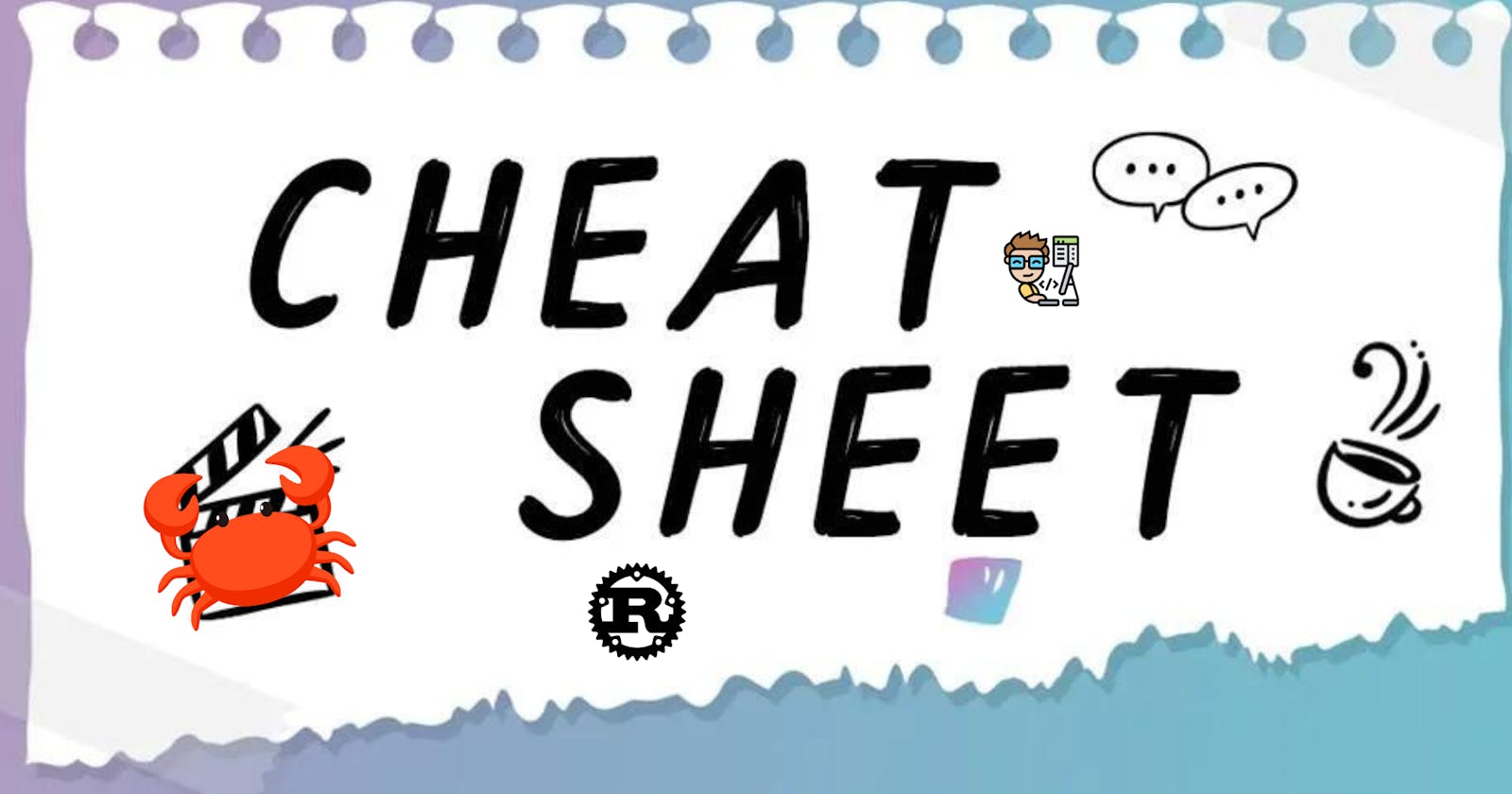1. Variables and Data Types
Declare a variable (immutable by default):
let variable_name = value;Declare a mutable variable:
let mut variable_name = value;Specify a data type:
let variable_name: data_type = value;Common data types:
Integer:
i32,u32,i64,u64Floating-point:
f32,f64Boolean:
boolCharacter:
charString:
StringArray:
[T; N](T: type, N: length)Tuple:
(T1, T2, T3)(T1, T2, T3: types)
2. Control Flow
ifstatement:if condition { // code } else if other_condition { // code } else { // code }loopstatement (infinite loop):loop { // code }whileloop:while condition { // code }forloop:for variable in iterable { // code }
3. Functions
Define a function:
fn function_name(parameter: data_type) -> return_type { // code }Call a function:
function_name(argument);
4. Enums and Pattern Matching
Define an enum:
enum EnumName { Variant1, Variant2, Variant3(data_type), }matchstatement:match value { EnumName::Variant1 => { // code }, EnumName::Variant2 => { // code }, EnumName::Variant3(variable) => { // code }, _ => { // code }, }
5. Error Handling
Resultenum for error handling:enum Result<T, E> { Ok(T), Err(E), }matchstatement withResult:match result { Ok(value) => { // code }, Err(error) => { // code }, }?operator for propagating errors:let result = function_returning_result()?;
6. Collections
Create a vector:
let mut vector = Vec::new(); // or let vector = vec![value1, value2, value3];Create a hash map:
use std::collections::HashMap; let mut hash_map = HashMap::new();Create a hash set:
use std::collections::HashSet; let mut hash_set = HashSet::new();
Detailed CheatSheet:
https://cheats.rs/
